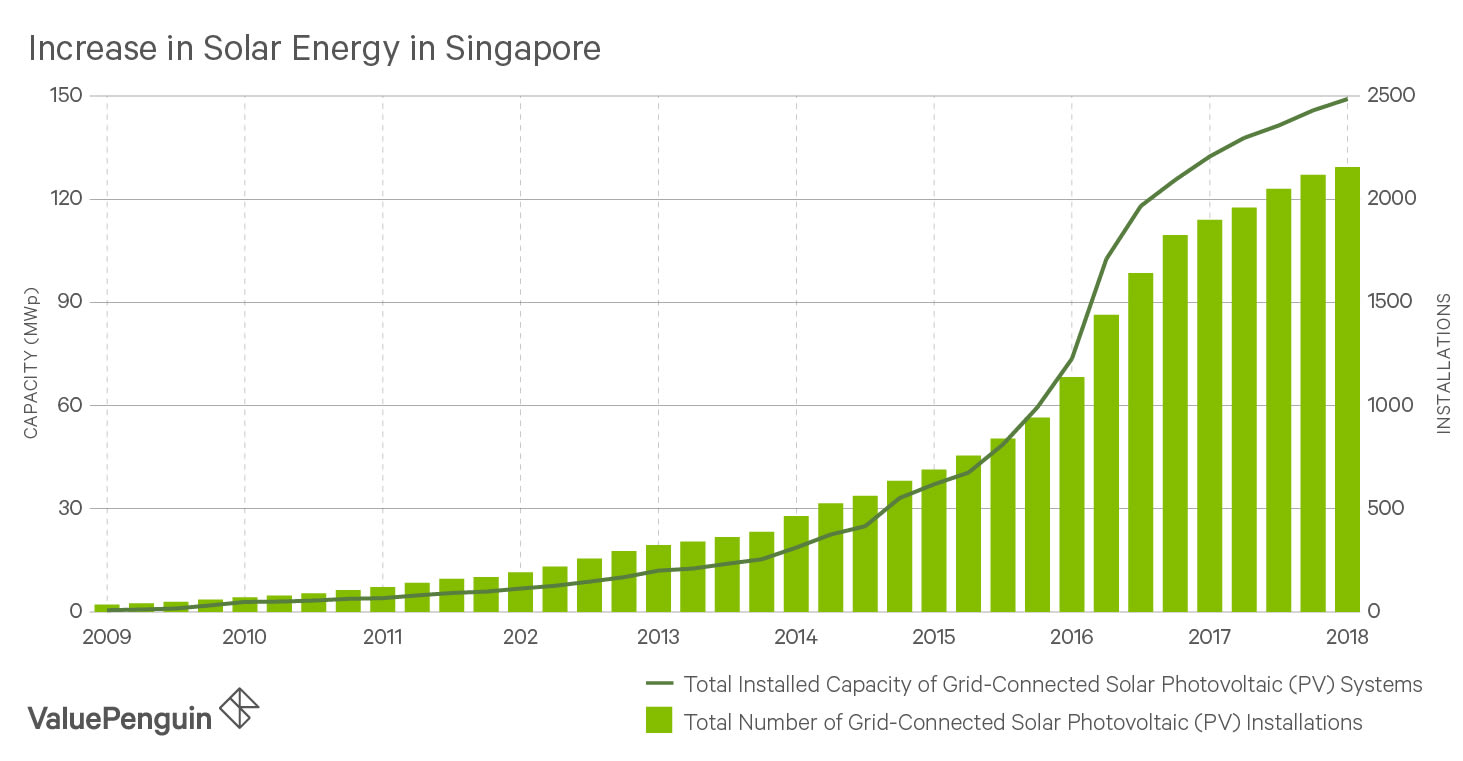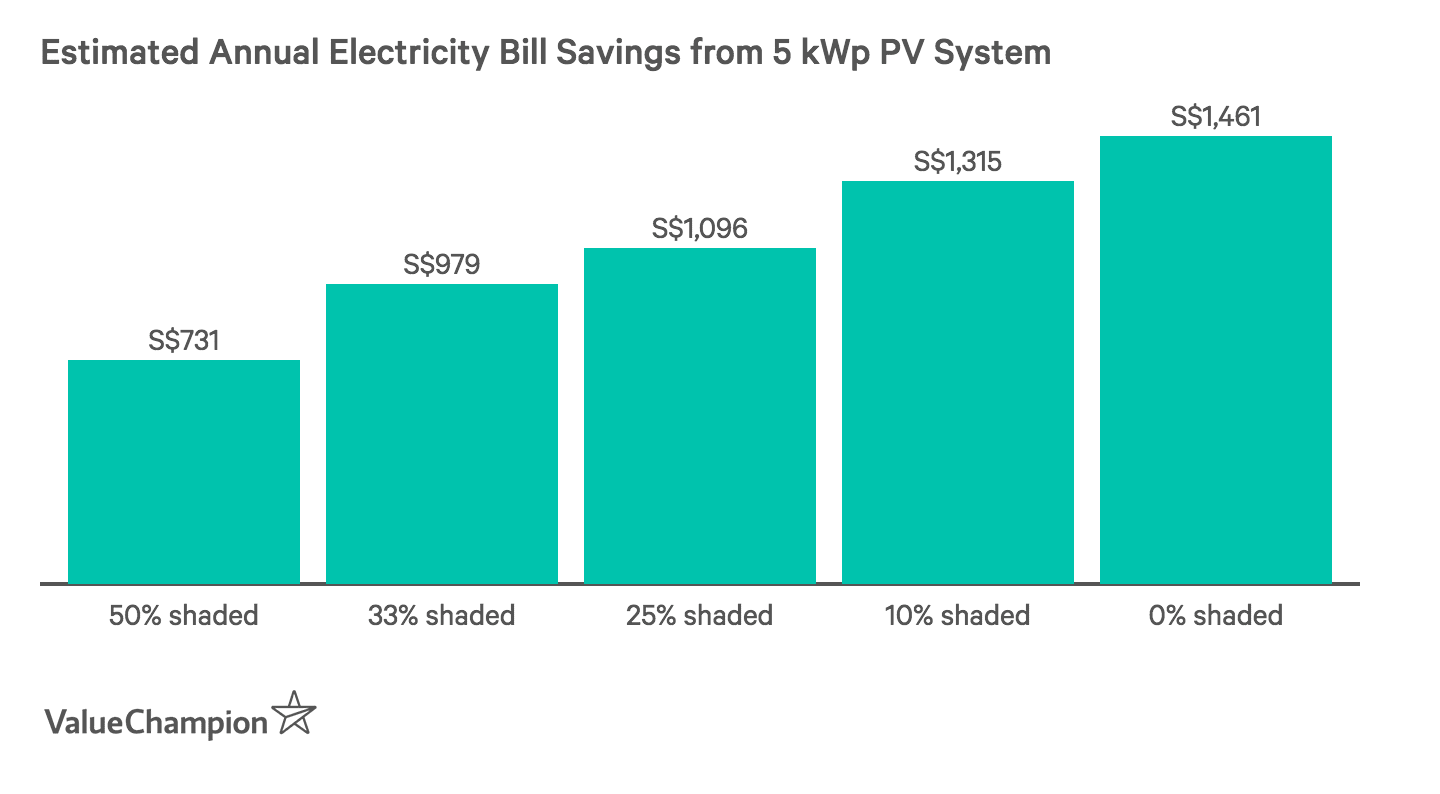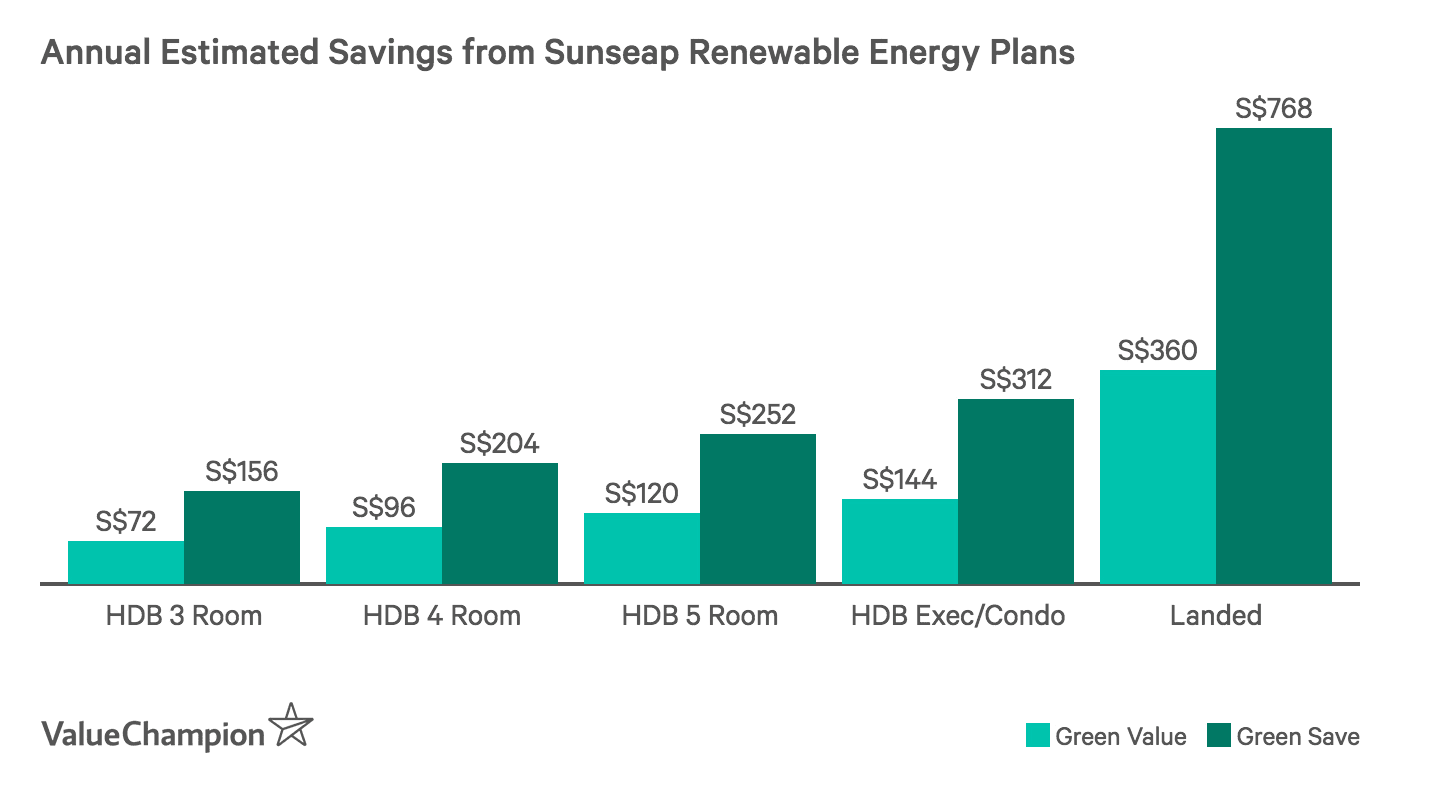Could Solar Energy Make Your Electricity Bill Cheaper?
Solar is a very exciting renewable energy source because it is a clean source of energy that can produce cheap electricity. With the rise in popularity, the price of a photovoltaic (PV) system in Singapore declined by around 80% between 2007 and 2015. Naturally, the adoption of solar energy has grown rapidly following the decline in cost. The total installed capacity of solar photovoltaic (PV) systems connected to the grid in Singapore has more than doubled since the beginning of 2016 from 73.6 MWp to 149.1 MWp at the beginning of 2018. In this article, we examine how consumers stand to benefit from the proliferation of solar energy in Singapore.

Purchasing a PV System: Trim Your Electricity Bill
First of all, technological developments have allowed individuals to purchase their own PV system for their home or business. There are many benefits to purchasing a PV system. One example is that it allows you to generate electricity directly and minimise your own electric bill. For example, even a small system of about 5-kW, which costs about S$10,000 - S$15,000, could yield hundreds to thousands of dollars in electricity bill savings each year. Therefore, the break even point for this sized system tends to be about 10 to 15 years, which could even be faster if utility prices increase over time. After the break even point, solar panel owners reap further savings for many years. Additionally, if your solar PV system generates a surplus of electricity for your home or business, you may even be able to sell this electricity back to the grid.

It is important to note that the price and payback period of PV systems at your home or business are highly dependent on the size and exposure of your roof. You can use SolarPVExchange's handy tools to estimate the costs and benefits of purchasing a solar PV system. These estimates are specially tailored to the characteristics of your roof, as well as your current electricity costs.
Solar Solutions for Small Businesses and HDB Flats
While those who are able to purchase a PV system can reap significant financial benefits, it is not possible for all households and businesses to generate their own solar energy. For instance, approximately 80% of Singapore's residents live in HDB flats where it is typically not possible to install their own solar panel systems. Similarly, businesses in large buildings will not necessarily be able to purchase PV systems for their premises. Fortunately for these groups, the Energy Market Authority's (EMA) Open Electricity Market (OEM) initiative allows households and small businesses to choose their electricity retailer, which allows them purchase solar-generated electricity seamlessly and save money. For example, Sunseap and Sun Electric offer a variety of electricity prices that are 16.5% to 25% cheaper than SP tariffs. Households can also purchase electricity with discounted rates based on SP tariffs. Moreover, the average home can save up to hundreds of dollars annually with Sunseap's Green Value and Green Save energy plans, which offer 50% and 5% solar generated electricity respectively. This program is currently limited to Jurong; however, it is expected that other areas in Singapore will soon become eligible for the same program.

Cheaper Electricity for All
Solar energy gives Singaporean homes and businesses the opportunity to save money and make a positive environmental impact. While the cost of solar energy has plummeted, not all individuals and businesses can afford to make this type of investment. Those that are unable to pay for their PV system may choose to consider a loan or business financing in order to finance their project. Fortunately for the majority of Singaporeans that are not be able to reap the benefits of generating solar energy directly, they are now able to purchase electricity generated by solar energy, which also offers cost savings and environmental benefits. These two methods are both likely to offer significant cost savings, though the exact amount can vary greatly depending on the characteristics of your home or business.
